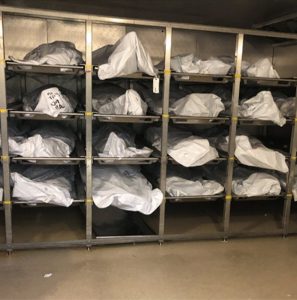I was on the bus one time when a bunch of teenagers got on and, because of crowding, they had to stand in the aisle. As soon as seats came open, they  claimed them, and then called to their friend that they had room for her. She archly said that she wouldn’t sit on a bus. According to her, “You can catch bugs from a bus seat.”
claimed them, and then called to their friend that they had room for her. She archly said that she wouldn’t sit on a bus. According to her, “You can catch bugs from a bus seat.”
Her friends teased her for being such a princess, but the more I thought about her declaration, and the possible origin of such a myth, the more I saw it as a complicated and cogent statement about her class background.  In just one sentence, she had exposed her parent’s socio-economic class, the attitudes they held about class and the poor, her impression of people who take public transit or who cannot afford cars, and what type of people were friends of the family.
In just one sentence, she had exposed her parent’s socio-economic class, the attitudes they held about class and the poor, her impression of people who take public transit or who cannot afford cars, and what type of people were friends of the family.
She was going to public school, so she was necessarily hobnobbing with the peasants, but her parents had brought her up to be more selective. Just being on the bus was no doubt a cross-cultural experience, and one that she didn’t seem likely to repeat. Even when she was young,  she would have had a driver, perhaps a parent, take her to school, for I doubt she would think that way if she’d taken the school bus. Going to the mall as a teen would have been cadged drives and taxis—if they weren’t too public for her—and she’d been brought up to think of that as her natural inheritance.
she would have had a driver, perhaps a parent, take her to school, for I doubt she would think that way if she’d taken the school bus. Going to the mall as a teen would have been cadged drives and taxis—if they weren’t too public for her—and she’d been brought up to think of that as her natural inheritance.
Perhaps without intending to, her parents have done her a grave disservice. If she is only allowed to move amongst the upper middle classes then she will miss the richness of human experience in the working and middle classes, as well as the experience of recent immigrants, and any others who take the bus. Those with disabilities  who cannot drive, count among that number, if they cannot afford taxis or have family who drive them, and activists whose environmental consciousness demands that they support local transit. There are also the younger kids who have learned to take the bus themselves before they became teenagers, and therefore are hardy, careful, and clever. The elderly rely on transit as well, to take them to appointments and to go shopping. She will never hear their long-winded stories about their early lives, and therefore miss part of the panoply of life. When she goes out with her friends once they are of drinking age, she won’t be able to extend the evening with a celebratory bus ride home, and she’ll never enjoy the warmth that a bus offers on a cold evening in Winnipeg.
who cannot drive, count among that number, if they cannot afford taxis or have family who drive them, and activists whose environmental consciousness demands that they support local transit. There are also the younger kids who have learned to take the bus themselves before they became teenagers, and therefore are hardy, careful, and clever. The elderly rely on transit as well, to take them to appointments and to go shopping. She will never hear their long-winded stories about their early lives, and therefore miss part of the panoply of life. When she goes out with her friends once they are of drinking age, she won’t be able to extend the evening with a celebratory bus ride home, and she’ll never enjoy the warmth that a bus offers on a cold evening in Winnipeg.
If her family should lose their wealth, she won’t know how to negotiate the city by transit, and will be tortured by a bus schedule or app that ten-year-olds find easier than gaming. Life for her when she’s newly poor will prove to be an endless humiliation, as she, out of necessity, rubs shoulders with those she considers to be her inferiors. She will be reluctant to ask the peasants for directions, and the bus driver will be too plebeian for her to seek an answer. She will reject conversations with lonely old people, with oddballs and hippies, and the other grubby coats and boots on the bus. Unable to make new friends, she will slide further into misanthropy, and her coworkers—as she strives to keep the lifestyle her parents have promised is to be her inheritance—will merely be another group of bus passengers.
tortured by a bus schedule or app that ten-year-olds find easier than gaming. Life for her when she’s newly poor will prove to be an endless humiliation, as she, out of necessity, rubs shoulders with those she considers to be her inferiors. She will be reluctant to ask the peasants for directions, and the bus driver will be too plebeian for her to seek an answer. She will reject conversations with lonely old people, with oddballs and hippies, and the other grubby coats and boots on the bus. Unable to make new friends, she will slide further into misanthropy, and her coworkers—as she strives to keep the lifestyle her parents have promised is to be her inheritance—will merely be another group of bus passengers.
The various codes of being a bus rider will be lost on her, and she will embarrass herself with more than her comment about bugs, as she refuses to sit when someone moves over to give her room, or cannot push past when someone is standing in the way. She will pay more fare, since she won’t ask how much she should pay, and she won’t realize that  she can bring packages onto the bus. She will instead stagger down the sidewalk with her Amazon purchases, if she could not bring herself to examine her fellow passengers enough to know whether such a box would be allowed aboard.
she can bring packages onto the bus. She will instead stagger down the sidewalk with her Amazon purchases, if she could not bring herself to examine her fellow passengers enough to know whether such a box would be allowed aboard.
Such phobias will naturally extend to other forms of transit, of course. Although the airlines won’t suffer from the loss, she will refuse to go to Mexican beach with her friends because she knows, deep down, that the people on the bus are the same as those on the airplane. Even  if her parents make sure she sits apart from her friends in first class, she will know that the bugs could have walked past the curtain separating her from those with box lunches. She will sense that her seat has been reclined a thousand times by hands other than hers, and that the blanket, regardless of its plastic wrapping, has comforted strange sweaty toes and crying babies.
if her parents make sure she sits apart from her friends in first class, she will know that the bugs could have walked past the curtain separating her from those with box lunches. She will sense that her seat has been reclined a thousand times by hands other than hers, and that the blanket, regardless of its plastic wrapping, has comforted strange sweaty toes and crying babies.
Ferries will rapidly follow the airlines in her estimation, and she will stay behind in Vancouver while her friends visit nearby Victoria. Their Instagram pictures of the wax museum and Empress Hotel will have to suffice, for she will know the ferry to the island will be crowded  with summer passengers and in the winter will carry those who work for a living.
with summer passengers and in the winter will carry those who work for a living.
She won’t buy used cars, and if her friends don’t get their cars cleaned professionally, she will refuse to ride with them. The plastic wrap will stay on the furniture in her house, and she will be condemned to switch to new houses every four of five years.  Any house which has echoed with another’s presence will be haunted by their odour, and a year’s steam-cleaning won’t remove the coating of grime from her fingers on the balcony railing, from her feet against the hardwood flooring.
Any house which has echoed with another’s presence will be haunted by their odour, and a year’s steam-cleaning won’t remove the coating of grime from her fingers on the balcony railing, from her feet against the hardwood flooring.
Her spouse would also need replenishing, as they become tired and used, and she will eventually end up alone. Her friends with children will live in sties, according to her, and she won’t have them visit unless they meet in a recently-paved park. She won’t have birds at a feeder, will leave poison out for the squirrels, and will call the exterminators every month to spray her house. Her high thread-count sheets will be pitched after one use, and she’ll stay in pajamas every day when the outside finally becomes too chaotic and filthy for her rarified touch.
Her grocery deliveries will finally be too fresh for her, the vegetables a vehicle for insects to enter her house, and she will stop all deliveries except those which arrive in a can. Like Howard Hughes she will follow a careful regimen of scrubbing and boiling, until the cans are safe to open with disposable can openers.
insects to enter her house, and she will stop all deliveries except those which arrive in a can. Like Howard Hughes she will follow a careful regimen of scrubbing and boiling, until the cans are safe to open with disposable can openers.
When she dies, rather like Emily in the Faulkner story, she will be alone. Although her friends—knowing her habits—will imagine that her body will remain as incorruptible as a saint’s, the insects drawn to putrefaction will find her. Crawling from the crannies of the house she imagined to be sterile, they will join those which live on the surface  of all of us—which she carefully didn’t think about—and feast on the carcass. Despite her best efforts, she will not be able to hold decay at bay, and her stomach gases will send their foul messages throughout the neighbourhood until the authorities are called.
of all of us—which she carefully didn’t think about—and feast on the carcass. Despite her best efforts, she will not be able to hold decay at bay, and her stomach gases will send their foul messages throughout the neighbourhood until the authorities are called.
When she is finally found, lying in state where she died—hunched over the sink scrubbing her house slippers, or in the act of pouring bleach on her dishes, or scuttling to the trash bin with the detritus of her house—she will suffer the final humiliation. She will be carried in an ambulance which has served a thousand people before her, all of them sick and some dying. At the morgue she will be placed  with the others, and if an autopsy is called for, she will not be treated with the kid gloves that her parents have taught her to expect. Alone finally, she will be burned or buried, and so make some final escape from the dirtiness of the world.
with the others, and if an autopsy is called for, she will not be treated with the kid gloves that her parents have taught her to expect. Alone finally, she will be burned or buried, and so make some final escape from the dirtiness of the world.
Given this future, I think she should take a seat with her friends. She should damn the bugs and what they can do to her. She should chat, share her own teenage stories of woe and despair, and take part in the vast streamer of entropy which
will come to all of us in the end. When a mosquito bites her, she should crush it with one practiced slap, and then wipe the resultant carnage on her jeans. Join us, her friends are calling, and avoid the path to which you seem destined.

